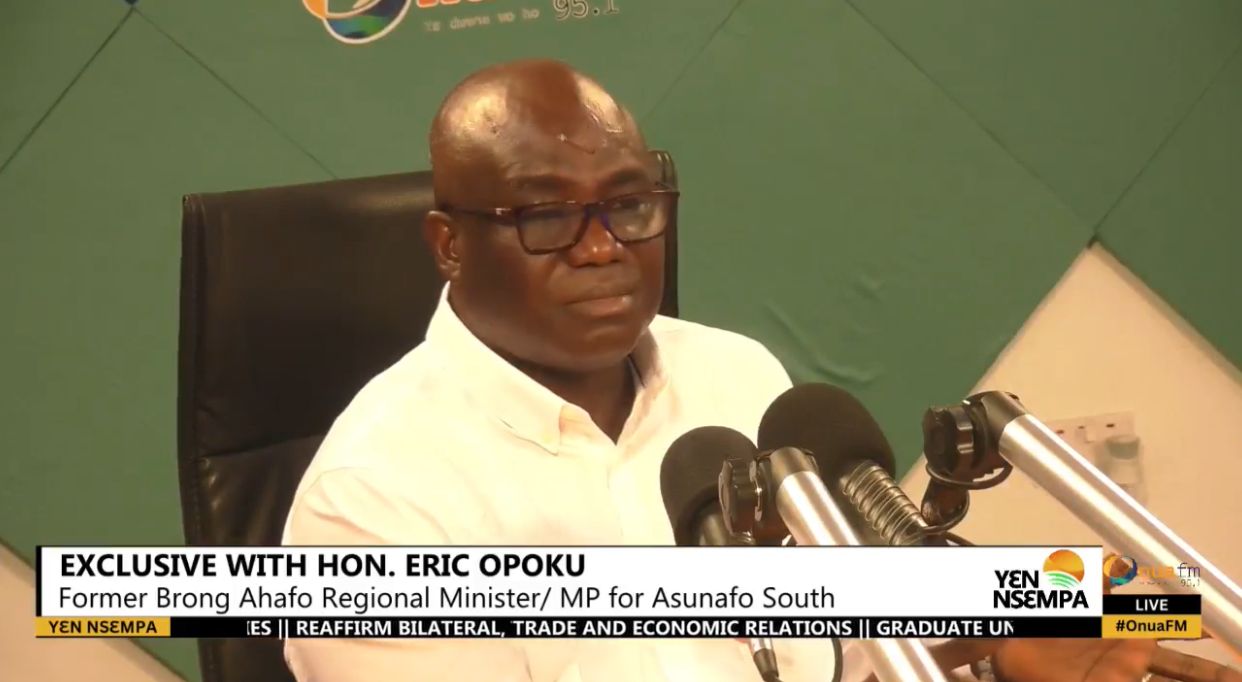In a scathing critique of the current administration’s financial stewardship, Eric Opoku, the Member of Parliament for Asunafo South, has highlighted the unprecedented financial aid recommendation from the International Monetary Fund (IMF) as evidence of Ghana’s dire economic straits under President Akufo-Addo’s leadership.
According to the politician, Ghana first approached the IMF for assistance three months after the overthrow of Osagyefo Dr. Kwame Nkrumah in 1966 and from May 1966 to 2016, spanning the tenure of various leaders including the period when John Dramani Mahama was the President, the total financial assistance received from the IMF amounted to $2.5 billion.
And “Never in our history has Ghana gone to the IMF and even needed $1.5 billion,” he remarked.
“But for President Akufo-Addo, when we went to the IMF, upon looking at our financial statement, they said we needed $3 billion. Ghana’s finances are ill.” he said on Onua FM’s Yen Nsempa morniing show on July 1.

The MP linked the country’s current financial woes to its engagement in a debt exchange programme, a move he believes signals financial distress to the global community.
“Ghana is in so much debt. If we do not find a way out of this, we will be in so much trouble as a country,” Opoku warned.
“Before a country admits to a Debt Exchange Program, it means we have accepted that we are broke and there is no way of coming out of it. The mere fact that Ghana has admitted to this means we are telling the whole world that we are broke and helpless,” he said.
In response to the crisis, Opoku called for innovative policies to rejuvenate the economy.
For this, he advocated for the NDC’s proposed 24-hour economy, which suggests extending working hours to 16 hours a day through a shift system to ensure continuous productivity.
“What policy can be introduced to help us come out of this debt and increase our revenue and jobs? That is the 24-hour economy, the Ghanaian Economy will never sleep, there will be continuous productivity” Opoku emphasized.
The politician further stated that hard work and extended operational hours are key to stabilizing Ghana’s economy and creating jobs.
By Lois Dogbe













